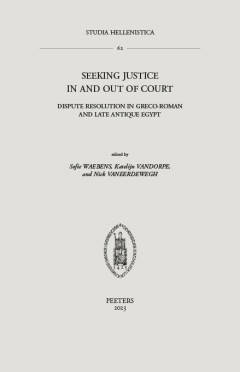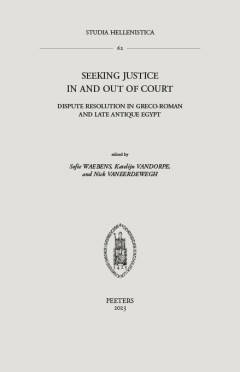
- Afhalen na 1 uur in een winkel met voorraad
- Gratis thuislevering in België vanaf € 30
- Ruim aanbod met 7 miljoen producten
- Afhalen na 1 uur in een winkel met voorraad
- Gratis thuislevering in België vanaf € 30
- Ruim aanbod met 7 miljoen producten
Zoeken
€ 105,00
+ 210 punten
Omschrijving
Family squabbles, fights over real estate, disputes about financial transactions and assault cases were no less complex to resolve in Antiquity than they are in the modern world. The unique evidence from Greco-Roman and Late Antique Egypt shows a wide variety of mechanisms that could be used to settle interpersonal disputes and to maintain social order within the country. In addition to the delivery of justice by state courts or officials, attempts were made to settle disputes on a more informal level through recourse to family members, associations, divinities or religious leaders. The present volume assembles contributions by scholars studying dispute resolution or the effectiveness of law enforcement from different perspectives and different fields, with a particular focus on the transformation of the dispute process between the age of the Ptolemies and that of the Byzantine emperors.
Specificaties
Betrokkenen
- Auteur(s):
- Uitgeverij:
Inhoud
- Aantal bladzijden:
- 446
- Taal:
- Engels
- Reeks:
- Reeksnummer:
- nr. 62
Eigenschappen
- Productcode (EAN):
- 9789042948785
- Verschijningsdatum:
- 28/09/2023
- Uitvoering:
- Paperback
- Formaat:
- Trade paperback (VS)
- Afmetingen:
- 155 mm x 240 mm
- Gewicht:
- 399 g

Alleen bij Standaard Boekhandel
+ 210 punten op je klantenkaart van Standaard Boekhandel
Beoordelingen
We publiceren alleen reviews die voldoen aan de voorwaarden voor reviews. Bekijk onze voorwaarden voor reviews.











